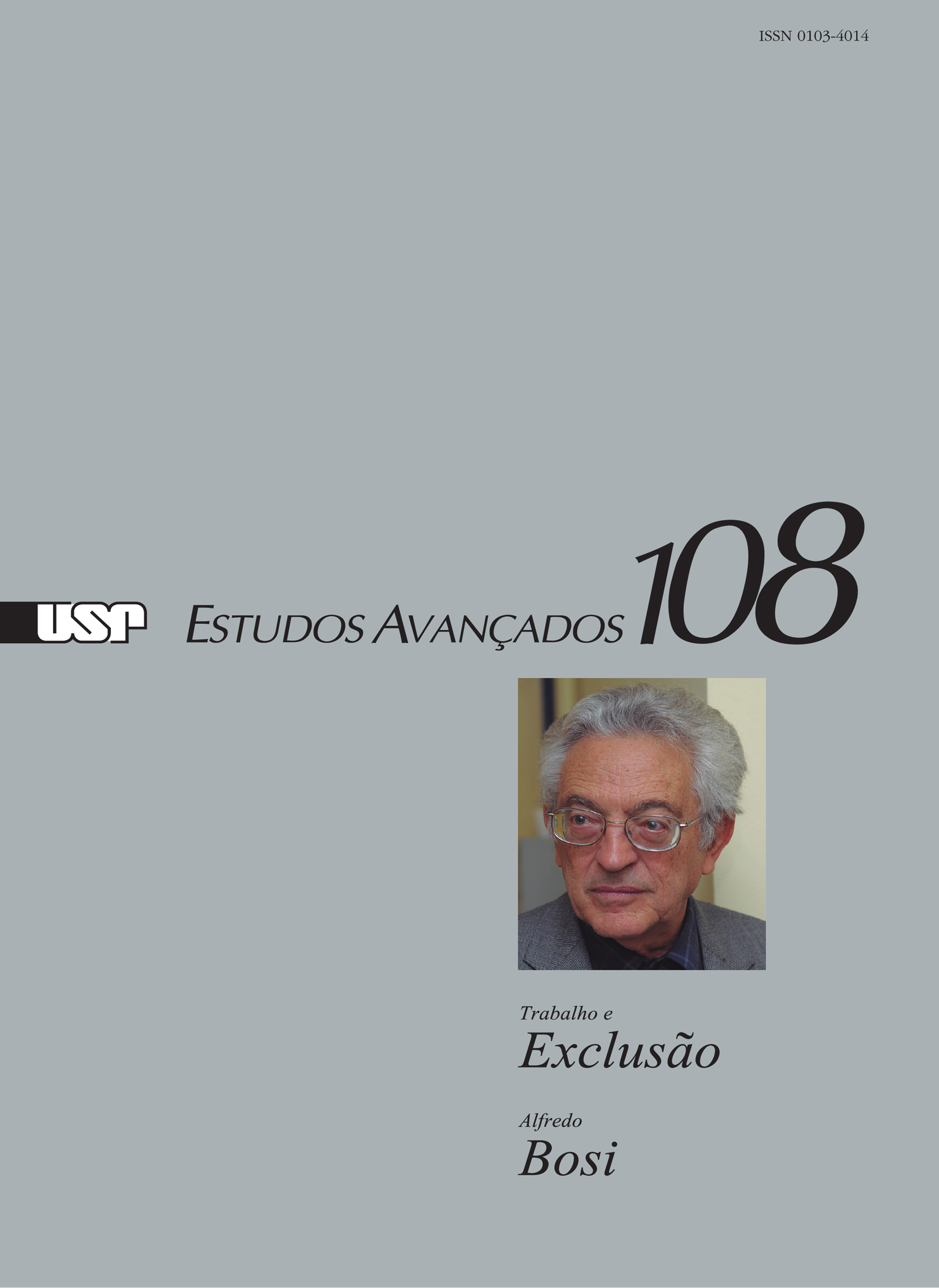Cristianismo libertário e redenção em Roberto Rossellini e Pier Paolo Pasolini
DOI:
https://doi.org/10.1590/s0103-4014.2023.37108.016Palavras-chave:
Literatura, Cinema, Resistência, ReligiãoResumo
Este artigo intenta realizar uma articulação entre a literatura e o cinema através do conceito desenvolvido por Alfredo Bosi no campo literário da resistência como forma de oposição a qualquer tipo de violência e exploração. Para o pensador brasileiro, esse conceito ético é o elo inquebrantável que une o escritor ao seu momento histórico. Em Stromboli terra de Deus (Stromboli terra di Dio, 1949-50) e Francisco arauto de Deus (Francesco giullare di Dio, 1950) Roberto Rossellini se volta para o sagrado para reafirmar as forças da vida num mundo que acabara de sair da Segunda Guerra Mundial. Em sua adaptação para o cinema do Evangelho segundo São Mateus (Il Vangelo Secondo Matteo, 1964) Pier Paolo Pasolini se serve do texto das escrituras como instrumento de oposição ao frio capitalismo da técnica, do pensamento utilitário e das formas cada vez mais exacerbadas de consumo.
Downloads
Referências
ANDERSON, B. Comunidades imaginadas: reflexões sobre a origem e a difusão do nacionalismo. São Paulo: Cia. das Letras, 2013.
BARTON, W. E. Old plantation hyms. Boston: Lamson, Wolffe and Company, 1889.
BOSI, A. Dialética da colonização. São Paulo: Cia. das Letras, 1992.
BOSI, A. O ser e o tempo da poesia. São Paulo: Editora 34, 2000.
BOSI, A. Literatura e resistência. São Paulo: Cia. das Letras, 2002.
BOSI, A. Paixão e ideologia. In: BOSI, A. Céu, inferno: ensaios de crítica literária e ideológica. São Paulo: Editora 34; Duas cidades, 2003. p.371-6.
BOSI, A. Ideologia e contraideologia: temas e variações. São Paulo: Cia. das Letras, 2010.
BOSI, A. Entre a literatura e a história. São Paulo: Editora 34, 2013.
CACCIARI, M. Gerar Deus. Belo Horizonte: Âyiné, 2021.
CONE, J. H. Risks of Faith: The Emergence of a Black Theology of Liberation, 1968-1998. Boston: Beacon Press, 1999.
EISENSTADT, S. N. Modernity in socio-historical perspective. In: BEM-RAFAEL, E.; STERNBERG, Y. Comparing modernities: pluralism versus homogenity. Massachussets: Brill, 2005.
GALLAGHER, T. The adventures of Roberto Rossellini: His Life And Films. Nova York: Da Capo Press, 1998.
GERBNER, K. Christian Slavery: conversion and race in the protestant Atlantic World. Filadélfia: University of Pennsylvania Press, 2018.
GUTIÉRREZ, G. Hablar de Dios desde el sufrimiento del inocente: una reflexión sobre el libro de Job. Salamanca: Ediciones Sígueme, 1995.
HOBSBAWM, E. Nações e nacionalismo desde 1780. Rio de Janeiro: Paz e Terra, 2012.
KELLERMAN SJ, C. J. All Oppression Shall Cease: A History of Slavery, Abolitionism, and the Catholic Church. New York: Orbis Books, 2022.
KÜNG, H. Women in Christianity. London: Continuum, 2005.
LE GOFF, J. São Francisco de Assis. Rio de Janeiro: Record, 2011.
LEOPARDI, G. Tutte le poesie e tutte le prose. Roma: Newton & Compton Editori, 1997.
LEOPARDI, G. Cantos. Edição bilíngue; tradução, introdução e notas Álvaro A. Antunes. São Paulo: Editora 34, 2021.
LÖWY, M. Redenção e utopia: o judaísmo libertário na Europa Central. São Paulo: Perspectiva, 2020.
MARTIN, A. von. Die neue Dynamik. In: MARTIN, A. von. Soziologie der Renaissance und weitere Schriften. Wiesbaden: Springer VS, 2016, p.14-52
MARX, K.; ENGELS, F. Manifesto comunista. São Paulo: Boitempo Editorial, 2005.
NIXEY, C. The Darkening Age: the christian destruction of the classical world. London: Macmillan, 2017.
OSTERHAMMEL, J. The Transformation of the World: A Global History of the Nineteenth Century. New Jersey: Princeton University Press, 2009.
PASCAL, B. Pensamentos. São Paulo: Abril Cultural, 1973.
PASOLINI, P. P. Saggi sulla politica e sulla società. Milano: Mondadori, 1999.
SCHWARTZ, E. (Ed.) Acta Conciliorum Oecumenicorum. (ACO) tome I: Concilium universale Ephesenum. Berlin & Leipzig: Walter de Gruyter, 1922-30. 5v.
SEKULA, A. The body and the archive. London: Routledge, 2006.
Publicado
Edição
Seção
Licença
Copyright (c) 2023 Paulo Roberto Ramos

Este trabalho está licenciado sob uma licença Creative Commons Attribution-NonCommercial 4.0 International License.
Estudos Avançados não celebra contrato de cessão de direitos autorais com seus colaboradores, razão pela qual não detém os direitos autorais dos artigos publicados. Os interessados em reproduzir artigos publicados na revista devem necessariamente obter o consentimento do autor e atribuir devidamente os créditos ao periódico.


